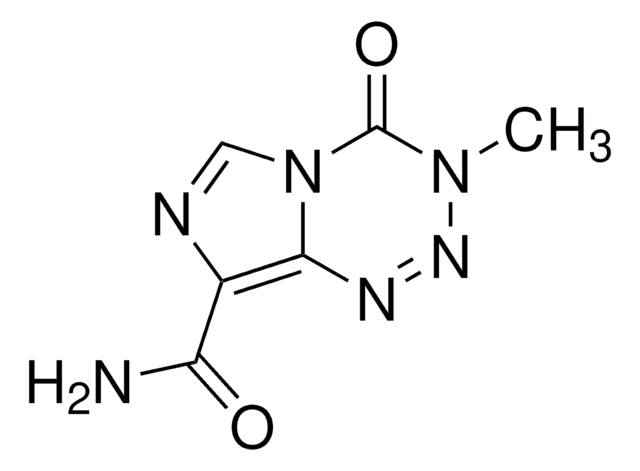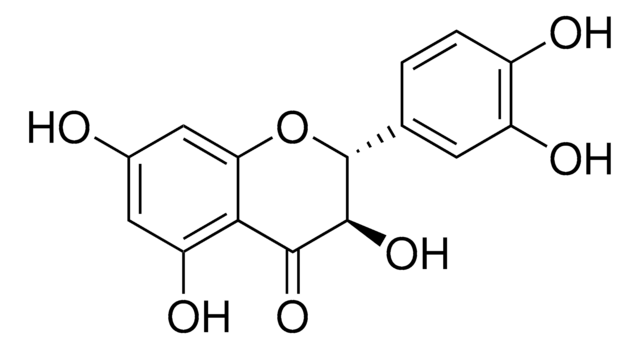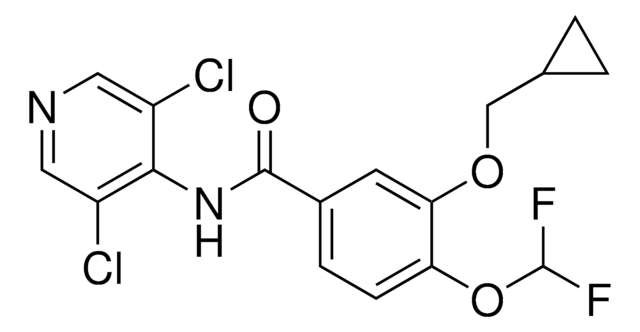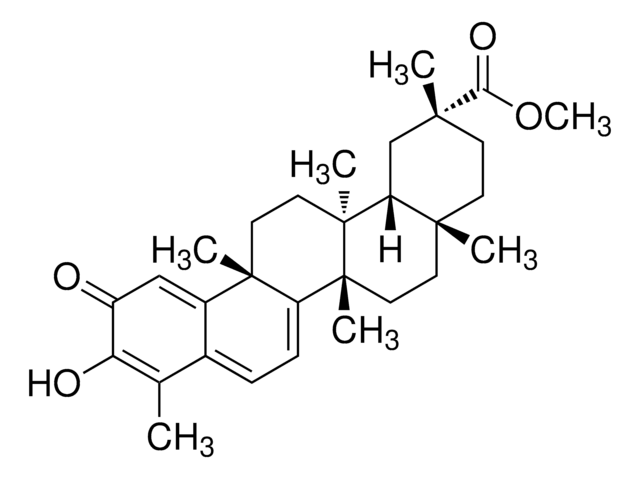Kluczowe dokumenty
SML2292
CCG-100602
≥98% (HPLC)
Synonim(y):
1-[3,5-Bis(trifluoromethyl)benzoyl]-N-(4-chlorophenyl)-3-piperidinecarboxamide, 1-[3,5-Bis(trifluoromethyl)benzoyl]-N-(4-chlorophenyl)piperidine-3-carboxamide, CCG 100602, CCG100602
About This Item
Polecane produkty
Próba
≥98% (HPLC)
Formularz
powder
kolor
white to beige
rozpuszczalność
DMSO: 2 mg/mL, clear
temp. przechowywania
−20°C
ciąg SMILES
O=C(N1CCCC(C(NC2=CC=C(Cl)C=C2)=O)C1)C3=CC(C(F)(F)F)=CC(C(F)(F)F)=C3
InChI
1S/C21H17ClF6N2O2/c22-16-3-5-17(6-4-16)29-18(31)12-2-1-7-30(11-12)19(32)13-8-14(20(23,24)25)10-15(9-13)21(26,27)28/h3-6,8-10,12H,1-2,7,11H2,(H,29,31)
Działania biochem./fizjol.
Kod klasy składowania
11 - Combustible Solids
Klasa zagrożenia wodnego (WGK)
WGK 3
Temperatura zapłonu (°F)
Not applicable
Temperatura zapłonu (°C)
Not applicable
Wybierz jedną z najnowszych wersji:
Certyfikaty analizy (CoA)
Przepraszamy, ale COA dla tego produktu nie jest aktualnie dostępny online.
Proszę o kontakt, jeśli potrzebna jest pomoc Obsługa Klienta
Masz już ten produkt?
Dokumenty związane z niedawno zakupionymi produktami zostały zamieszczone w Bibliotece dokumentów.
Nasz zespół naukowców ma doświadczenie we wszystkich obszarach badań, w tym w naukach przyrodniczych, materiałoznawstwie, syntezie chemicznej, chromatografii, analityce i wielu innych dziedzinach.
Skontaktuj się z zespołem ds. pomocy technicznej







